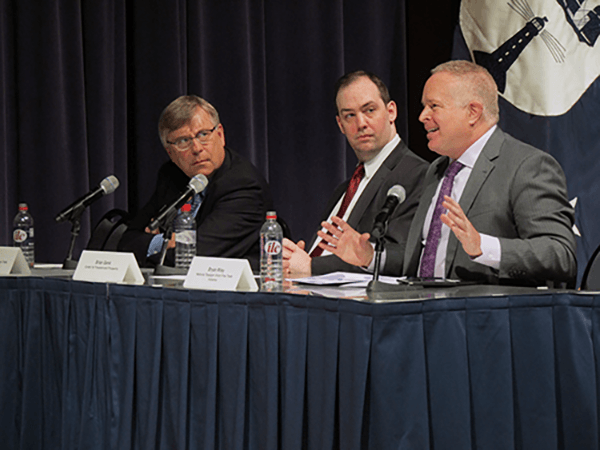
At yesterday’s Department of Commerce public hearing on the national security implications of new auto industry tariffs, National Taxpayers Union Free Trade Initiative Director Bryan Riley had the chance to testify to the merit - or lack thereof - in imposing new auto tariffs on the American economy. An edited version of his remarks are below, as well as his official comments submit for the record.
My name is Bryan Riley and I’m with the National Taxpayers Union. Established in 1969, NTU is the nation’s oldest taxpayer organization. You have my written comments, so what I’d like to do is just touch on a few highlights.
NTU went through the public comments that were submitted from the public that you requested. Most of the people I’ve heard today, if not all, think these tariffs are a bad idea. Of the public comments, roughly 98% have said don’t impose these tariffs.
The costs these tariffs would impose would roughly triple the tariffs that Americans would pay, based on our 2017 import volumes. That has national security implications as well. In 1983, a previous 232 investigation noted that trade restrictions “act as a drag on the rest of the economy, eroding the industrial base and other sectors, and undermining our ability to sustain a balanced defense effort in a national emergency.”
I was looking at the most recent 232 investigations of steel and aluminum tariffs, and one of the things that Commerce looked at was whether imports are weakening our internal economy. I hope you’ll use the same criteria here, because I don’t think a strong case can be made that imports are weakening our economy. In fact, I think imports strengthen our economy. If you look around the world, the countries that are the most prosperous and have the most economic security have one thing in common: they have the most economic freedom.
Just last night, Rep. Kevin Brady, Chairman of the Ways and Means Committee, noted that “nothing will weaken America more than rolling back our freedom to trade.” There’s been a broad amount of research done on the impact of trade on international relations, and I would urge you to consider this in your analysis.
Tariffs are not economic remedies. Tariffs are the virus. Tariffs are the problem. We need to move in a direction of more international trade and more economic freedom, not less freedom. I hope you all consider that.
As your economists are looking at this, the overall view of economists is that trade is not just good economics, it’s not just good for prosperity, it’s good for our security as well.
Thank you.
Riley's official statement entered for the record can be found here, in which he makes the case that both a consensus of economists and an overwhelming majority of Americans - both consumers and small business owners across the United States - oppose these new tariffs.


